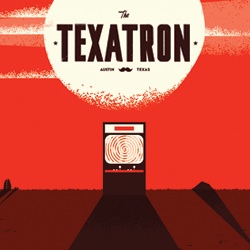RAGDOLL METAPHYSICS: QUAKE WARS DESIGNER ED STERN ON BLIND LUCK AND THE PROBLEMS OF ORIGINALITY
Ed Stern is a senior games designer at Splash Damage, the UK studio that made Enemy Territory: Quake Wars. In this wide-ranging conversation we discuss the fluke of luck that was the original Enemy Territory game, and why originality might not be the best thing for game designers to pursue.
So let’s talk about games, in the first of my quaint fireside chats with developers. I will have already set the scene for readers by now, via some introductory text, so let’s plunge in. You’re known as senior games designer at Splash Damage…
Ed Stern: Yes, I worked on both the Enemy Territory games. I’m always a bit baffled by job titles. There is some standardisation of that stuff across the industry now, but the reality of the job from one studio to the next could be radically different. It’s much the same in TV or the film industry, “assistant director” might mean the guy who had incredible input to the film, or he might just have sat in the trailer doing paperwork. Game designer is a pretty general catch-all, every artist and coder and tester is helping designing the game too…
But you, at least, had some design input with the big break for Splash Damage, Wolfenstein: Enemy Territory, a game that was enormously popular. A huge game for a very small company?
Stern: Well it was the result of a huge amount of work by Splash Damage, very little of it done by me. Splash Damage is Paul Wedgwood’s company, and much of it his graft. But it was also the consequence of a huge amount of luck, without the excellent intervention of Id Software and Activision we would never have got to work on the game. And sometimes that good fortune feels grossly unfair.
I keep hearing about people evidently considerably more talented than me who have been working in the industry for years and never seen a game released. Nothing wrong with their work, just bad luck with publishers or the business side of things. I feel pretty lucky to have had two, OK, arguably one and a half games shipped in my seven years, and have both of them be kindly received.
And for a small studio that windfall of getting to make add-on, expansion type stuff – which Enemy Territory was for Return To Castle Wolfenstein – is often the only way to AAA game development, isn’t it?
ES: Yes, that’s true, it’s a huge opportunity for the smaller studio, but also useful for the publisher. Before I joined, SD was mainly built from the Q3F mod team. When someone has already gone to the trouble of assembling a functioning feasible team, that’s the hard bit out of the way. Game ideas are two-a-penny, but having the right people together in the same room, ready to actually make a game happen, well that’s a rare thing. Additionally, basing a game on an existing product makes everything easier. I don’t think it’s appreciated quite how much we based Enemy Territory on the work done by Nerve Software, for the original Return To Castle Wolfenstein multiplayer, which was a really great multiplayer game.
It was overlooked, certainly.
ES: And having a really solid engine and tools and some tried-and-tested systems in place makes things much easier for a small studio, as we were at the time. We made loads of our own stuff, of course, but the worst of the work had already been done. It was a great way for us to learn.
And you lucked out with Wolfenstein: Enemy Territory being released for free, too. The free release create huge profile, and an equally huge fanbase. That’s something very few studios can rely on…
ES: Well it wasn’t meant to be free! It was meant to be a full-price retail release, with both single and multiplayer games. Another studio was working on the single player, but that got canned and then Id and Activision had to decide what to do with our multiplayer bit, because at that time it wasn’t at all clear if people would pay for an MP-only game. And kudos to Id and Activision, they released our bit for free, even though it cost a lot to put it through QA testing and so on. So that was another enormous stroke of luck for us, and then it did well and got nice reviews and that got us Enemy Territory: Quake Wars.
Yet it worked for you, and for Activision, with tens of thousands of people playing the game and keeping the Wolfenstein name fresh. On a related topic: did you see Burnout Paradise being released as a time-limited demo on PC, a full-game download which can be opened up for the full thing?
ES: Yes, an excellent idea.
Particularly on PC, where digital distribution is so strong. Why not just put the game out there and make it easy to pay for it? It certainly heads off a load of the grumbling about piracy. They’re already distributed the client electronically, and people didn’t even need to torrent it. It seems like they realised their best hope was to get the game out there and see who paid for it. I hope the approach is rewarding for them, because it seems just the right thing to do for the PC.
ES: It’s smart. And I think it’s a model that could be really smart for multiplayer games, because it gets people playing. I think that’s the biggest issue for those kinds of games: to get the idea out there. The entire notion of multiplayer gaming is a mystery to most people. Is it 70% of next gen console owners who don’t realise they can connect them to the internet, let alone play other people online?
To illustrate, I was at a friend’s house over Christmas, a very smart, well-informed successful chap. I was trying to explain my job to him and about multiplayer FPS gaming and he sort of narrowed his eyes in thought and said: “Call Of Duty 4, I’ve played that!”
He’d played its single player story, but had no idea he could play it online against other people on his PS3. He’d never been exposed to the idea, and so hadn’t even thought to click on the multiplayer options in the game. People do that: they buy a console to play games, but that doesn’t mean they immediately grasp the all the potential extensions to that, however long-established or axiomatic they seem to habitual gamers.
Yes, we blog-reading gamer technotypes do not realise how easily that stuff comes to us. We know the language and the logic intimately, so much so that we forget we had to learn it.
ES: Yes, the hardcore gamers really are the “beret-wearing coffee-sipping intellectual Art House crowd”, although they don’t realise it. They think they’re the mainstream but they’re not.
There’s often a lack of perspective among gamers. I mean, going back to Enemy Territory, at the time there was this definite feeling that FPS e-sports were going to explode and usher in this new era of competitive gaming in the mainstream. That seems absurd now, even though the scene has continued, it has never taken off. And how could it, when it remains so impenetrable to the average man who watches football on TV? Also, the focus on the FPS as an “e-sport” seems weird to me, when the most successful e-sport is actually Starcraft…
ES: Absolutely, and that does sound dismal when you say it out loud, because it seems like Starcraft’s TV success is unrepeatable outside Korea, with it’s unique PC Baang culture. But I think it could be repeated, especially if Average Joe realises that he could be in a tournament, and he only need pick up a gamepad. “Oh, I can be on television?”
There’s no shortage of mainstream media coverage of other things people enjoy and spend money on, and it seems ridiculous that games seldom get that attention. My job before Splash Damage was making TV about games for a now-defunct satellite/internet channel. Making TV about games should be the easiest thing in the world, and yet it seems impossible for anyone to get people who know how to make decent TV and people who know about games in the same room together. It shouldn’t be that hard.
And yet that’s probably what will catalyse the e-sport boom that we were expecting all those years ago: TV advertising. It’s just not happening. I mean, Christ, in the UK the biggest games TV show since GamesMaster was Time Commanders.
ES: Fair play to everyone involved in Time Commanders, but what was it? A documentary? A gameshow? A test of the contestants’ theories? A test of Rome: Total War as a historical military simulator? What? It was just desperately uncertain in tone, as much of games TV seems to be.
They seem to be embarrassed that they’re about games, and continually apologising for it by trying to look as if they’re about something else. Which is silly, because there’s an incredibly rich, ironic and self aware culture surrounding games, but none of it seems to be reflected in the TV coverage.
Yes, I wonder whether the e-sports angle is wrong for games. Perhaps the real value in covering it will come from stuff that takes that documentary angle. I mean, documentaries on base-jumping are fascinating, even if you don’t jump off buildings. Likewise loads of people read the articles I write about Eve and then comment “Fascinating, but I will never play this game.”
ES: Time will solve this problem. If the contemporary media refuses to show the day to day reality of games as they are, then we’ll just have to wait them out. It’s like rock and roll being a “problem”: eventually everyone will have grown up with games, and will understand them to some extent. What games need is a segment on morning TV, or on Richard & Judy. Every other aspect of culture gets that kind of basic consumer journalism news and reviews treatment, so why not games?
Changing the subject somewhat, you’ve been playing Company of Heroes, haven’t you? A game so similar in theme to Wolfenstein: Enemy Territory, that you can almost see where they overlap.
ES: CoH is brilliant, I can’t wait for the next instalment. There are so many games set in World War II particularly FPS’s, and so many of them are striving after that Saving Private Ryan feeling and yet it’s this god’s-eye-view build-your-factory-first RTS game that gets closest to that immersion. The graphics are pretty great for an RTS, it’s like FPSs were not so long ago, but the audio is just stupendous, it really makes the experience cook.
And as ever we’re clinging onto the coat-tails of movies, they’re almost always the point of reference for games. Speilberg’s director of photography Janusz Kaminksi does that silver-retention process desaturated greyed-out look for Saving Private Ryan and now that’s just what we expect gritty combat to feel like in games.
Games get so much from film. I mean imagine what games would look like with James Cameron’s Aliens?
A topic I intend to discuss on this very blog. In fact I kind of started in that piece about The Sims. What if interactive fiction had ushered in games that were detective fiction or romance novels? Couldn’t it all have been rather different?
ES: Yes, that kind of notion reminds of what Steve Meretzky was doing in the 1980s, the Infocom stuff. I mean A Mind Forever Voyaging is just a mind-blowing conceit for a game. It was basically just text, but it tackled these extraordinary subjects. Which is what games were able to do more of before the genres settled down. Vastly imaginative, and I wish there could be more of that sort of thing.
Have you ever played Sacrifice?
ES: No! Should I?
It’s over on Good Old Games. Pick it up, it’s completely mad.
ES: I’m looking forward to that Chilean Hieronymus Bosch-em’up Zeno Clash. Good luck to them, I say. I fear super-high-poly better-than-real-textured and-lit photorealism has been a bit of a blind alley for games. It’s eight times more expensive to do than last-gen tech, but not eight times more fun for players.
So are games weird enough?
ES: No, of course not, nowhere near. They could be about anything.
The logic of games does end up being built into a particular visual language, though. Zeno Clash won’t press many buttons with people. They need something set up for them in their own cultural vocabulary, which is what films are great at. Problem is, there aren’t any films like Sacrifice. There’s no precedent for the stuff games can potentially portray.
ES: Yeah, it’s just not self-evident. That great John Lanchester piece in the London Review of Books points that out – the conventions of games are no weirder than those of opera or ballet, it’s just that much of gaming remains impenetrable to people, because they have to do something.
It’s easy to forget that when you’re immersed in the culture and practice of games. The number of times you’ll do a usability test on a particular feature, which you’re sure you’ve bust a gut to make clear, with explanatory voice-over playing and tooltip texts popping up all over the screen, only to watch the player staring blankly at the screen, taking nothing in, defies belief.
Then again, we had to learn to watch movies too. There’s that great story about the World Health Organisation showing a health and hygiene educational film to tribespeople who had never seen a moving picture before, and afterwards they asked, quite agitated: “What happened to the chicken?” A chicken in the background of one shot wasn’t there in the next, and chicken ownership was a pretty important issue for them, so that’s what they engaged with. I think that problem will disappear, because kids are growing up with the notion of interface in all things. Understanding that will come naturally to them.
I think people are still working out how to respond to games, too. Their evolution is really tricky for people wanting to describe what’s going on. I mean take Mirror’s Edge. All the reviews are this awkward compromise between trying to express that they game wasn’t all that fun, and trying to articulate that it’s doing something quite new for first-person games.
There was so much conflicted feeling about the game introducing a fresh visual theme. People seem to get caught up on one aspect or another, unable to unhook themselves from the beautiful city theme, or from the frustrations of running and jumping with momentum like that. The risk that DICE took in making that game seems to have paid out in confusion.
ES: DICE definitely deserve credit for trying something different, but gamers are more conservative than we’d like to think they are. The game genres have come into being for a reason. It took a while for them to settle down, but now you cross or combine them at your peril. I’m probably not to be trusted on this particular subject, because I’m too pro-developer.
It’s so hard to get anything finished in games. So expensive to get anything done, my sympathies are always with the developers. Why don’t they push the envelope? Because if there’s anything really risky, it’s hell to make and it usually sells poorly or it gets canned. Most people who are directly, vocally involved in the games community are more extreme than they realise. They want to see the limitations of the genre exceeded or challenged, where most people – most developers, and probably most consumers – are more than happy with something that just works.
People seem happy to defend the generic dialogue in any high-profile FPS, don’t they?
ES: Actually, I think there’s a good case to be made against originality, there are lots of reasons to avoid being original in game designs. That’s just the reality of the environment in which most people today are making games. There are negative reasons, like being risk averse or not knowing any better, and positive reasons like giving more people what they want. Aliens is a great example – make your game look and sound like that, and people know what to expect.
It ties into all the stuff that Ken Levine was saying about BioShock, like just how few people really pay attention to all the extended backstory and those audio diaries and all the nuances of the world. When you are making that kind of game, you are really making it for those few people like you, many of whom are games journalists, or clever, obsessive gamers.
I guess it’s like you are buying respect in a way, demonstrating that you’ve really worked on a game, and not just knocked it out. Of course, it’s what game designers and game writers want to do: to create complex, beautiful worlds that stand up, but that’s hard, and expensive. How many studios can afford to do what Irrational did, or what Valve do? How often can you really scrap a load of work and start again? And remember, it’s usually not your money to spend on it, it’s your publisher’s shareholders’.
And that ties into something else we’ve talked about before, which is the extent to which know how to do something in games is incredibly tricky. The traffic ideas between game developers is very difficult, because there’s so much noise, and so much going in games. Has it got better, do you think? Are the right ideas getting to you, the game developer?
ES: It has improved, yes. There are the publisher-approved post mortems and some nice in-depth interviews. But there are just so many people engaged in designing games, it’s hard to get a single or even a few functioning forums for that information to be exchanged. Which is frustrating, as we keep having to solve the same problems over and over again.
One would hope the internet would just bring all the demand and supply of information together, but there’s so much to know about game design, and so much of it is hands-on. Maybe it’s not any tougher for designers. I suppose artists can practice their skills and learn about new 3D tech, normal mapping, whatever online, but they still have to deliver in a pressured work environment, not at their leisure. . And a producer needs to know about production, which is a massive task for big games: managing people, scheduling, assembling teams, that’s a dark art. You can’t just “solve” that, even with all the tools of the internet. It’s all hands-on.
What’s most interesting to me is seeing all these people coming into the industry who have done academic game design courses. Some of them are very good indeed, we’ve made some very good hires, no complaints there, but the conservatory production line aspect of it troubles me. Clearly some people just aren’t being prepared for work in the industry. I mean who is teaching them, for a start? Particularly the game design side of things, which really is about doing.
The few courses that don’t include actual making of games do seem ludicrous.
ES: They can teach you some terms and taxonomy, and it can try to teach you theory. But then I worry that this kind of approach leads to you checking reality to see it matches with the theory. So much of making a game lies in the execution. Lots of games shouldn’t work in theory but are brilliant to play.
Quite a few developers I’ve talked to about this kind of thing seem “anti-theory”. They’re deeply practical, pragmatic people. They have no time for trying to explain games via some kind of foundational methodology. Does it do more harm than good?
ES: Not necessarily, and it can be very useful. So much game design seems to be wheel-reinvention, so it pays to spend time knowing your rims. But Critical theory – in literature, games, movies – should inspire, and allow you to make useful comparisons. The danger is of just creating an ecology of critical terms and then endlessly tending it, or of taking games that clearly work in practice and agonising about whether they work in theory.
That sounds like time better spent playing, say, Relic’s Dawn of War and Company of Heroes and appreciating how well they’ve taken the same underlying gameplay and dressed it up, brilliantly and evocatively into two very different worlds – art style, animations, particle effects, level design, environment art, ambient and voiceover audio, all working together to persuade and immerse and entertain. And work out how they’ve done it and steal it. Relic do that stuff just brilliantly.
That they do. And you’ve hit on a topic I will be picking up again in a future column. But sadly we’ve run out of time. Thanks for your insight, Ed, it’s been fun.
ES: Ta-ta!
[Jim Rossignol is an editor at RockPaperShotgun.com and the author of This Gaming Life, an account of the life of modern videogames and some of the people who play them. Ragdoll Metaphysics is his Offworld column exploring and analyzing gaming’s vast world of esoterica.]
Previously:
Ragdoll Metaphysics: Good Grief, The Victory Of Eve's Space Goons …
Ragdoll Metaphysics: Memories of 2003, or Why We Need Planetside …
Ragdoll Metaphysics: Soap Opera & The Sims – Offworld
Ragdoll Metaphysics: 2008 And The Indie Renaissance – Offworld
Ragdoll Metaphysics: Ten Things That Made Me Glad To Be A Gamer In …
Ragdoll Metaphysics: Left 4 Dead, The Thinking Man’s Braindead Shooter – Offworld
See more posts about: Offworld Originals, Ragdoll Metaphysics






